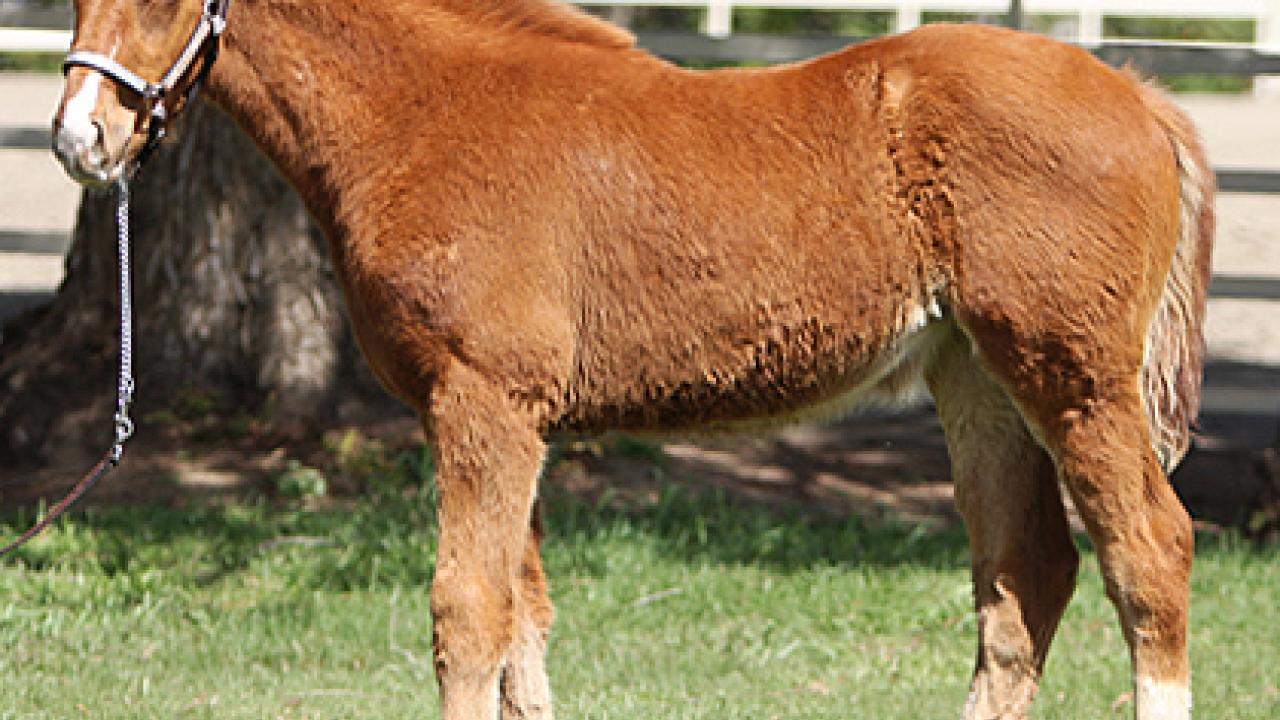Not all finals at UC Davis take place in a lecture hall. For more than a dozen animal science students, the year’s toughest test will come Saturday, June 20, when they take the young horses they have bred, raised and trained into the auction arena for the annual horse production sale.
The public auction, this year called the “Proof Is in the Progeny” sale, will be held at 6 p.m. in the horse barn arena on La Rue Road on the UC Davis campus. It will feature four weanlings, eight yearlings and two adult horses and will be preceded by a 2 p.m. preview of the horses and a 4:30 p.m. barbecue dinner.
“This is a great opportunity for these students to work with horses, from foaling to the sale ring,” said Joel Viloria, equine facilities supervisor for the Department of Animal Science. “The horses that we put through the sale have been introduced to everything under the sun, and most of them have even had saddles on their backs already.”
“We welcome both potential buyers and members of the community who just want to enjoy the sale to come out and support the horse barn program. The student interns have put a lot of sweat and tears into these horses,” he said.
Reporters interested in interviewing or photographing students working with the horses in preparation for the auction should contact Viloria at (530) 754-4156, jeviloria@ucdavis.edu.
The group will include registered American quarter horses, American paint horses, Appaloosa horses, warmbloods eligible for registration with the Selle Francais Association and a registered mule.
The sale is the culmination of a six-month internship for the students serving as foal managers. During the internship, the students learn how to handle and train weanlings and yearlings, as well as provide care for the mares and foals before and after birth.
The students also are responsible for grooming the horses for the sale and training the foals to stand tied, load into a trailer, and stand to be clipped and shod. They exercise the horses regularly and expose the foals to a variety of activities involving large crowds, heavy equipment and the show ring.
Proceeds from the sale, which traditionally brings in $20,000 to $30,000, will support the animal science department's Equine Management Program. This program provides hands-on experience for students preparing for careers in the horse industry or for further studies in veterinary medicine or graduate school.
Detailed descriptions of the horses and the Equine Management Program, as well as driving directions to the horse barn, are available online at http://animalscience.ucdavis.edu/HorseBarn/ProductionSale/index.htm.
Media Resources
Pat Bailey, Research news (emphasis: agricultural and nutritional sciences, and veterinary medicine), 530-219-9640, pjbailey@ucdavis.edu
Joel Viloria, Animal Science, (530) 754-4156, jeviloria@ucdavis.edu
